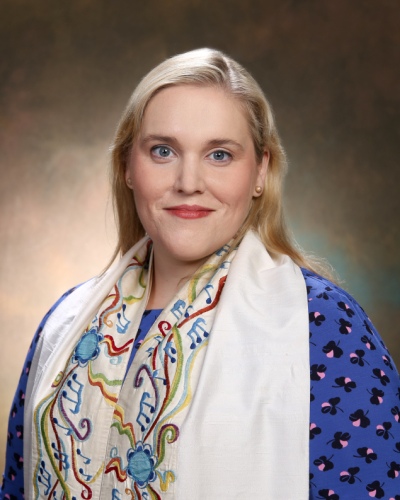Last week at a conference out of town, surrounded for two days by old friends and colleagues, I was plagued by three small words: “How are you?”
Over and over again the question came. And over and over again, I dodged it.
But halfway through the conference, I misread the intent behind the question and thought the person actually wanted to hear a bit about my life – and so I responded, for about 3 minutes! “Work is this but also this, personally things are great but here’s a thing about that, it’s so exciting to see all of these people but also overwhelming…” After I’d finished attempting to sum up all of the components of how I was, my colleague nodded slowly. “Wow!” she said. “That was…um…honest…” And then I realized – she wasn’t actually asking how I was, not really. She was just trying to be polite.
We hear this question all the time, and most of us think little of it. We respond “great!” or “hanging in there” or “doing okay” or “busy” and move on with our days. And perhaps that is the more appropriate response in a world where we are all running late and seem to have multiple places to be, all at the same time. Perhaps it is enough to have offered the question as a tack-on to a “hello.” Perhaps that quick attempt to convey an additional layer of attention or care is all we can spare sometimes. Perhaps knowing that someone cared enough to pose a question at all should be enough.
But in transforming a legitimate question into a greeting, especially a question with so many potential layers of response, and by giving ourselves permission to respond in brief, or sometimes not at all, I wonder if we are missing a really important opportunity to check in with each other and ourselves.
When my colleague asked “how are you” and I divulged what it turns out was way more than she had bargained for, I felt a bit ashamed that I had responded so fully. But as I reflected on it later, I realized that I had responded in such a way because I had been waiting to be asked. I had responded so fully because I myself had needed to know how I was!
What if, every time someone nonchalantly asked “How are you?” we took a moment to check in and asked ourselves: “Huh. Good question! How AM I?” We might find out all sorts of things about how we are feeling and what our needs are at any given point in the day.
And what if we actually responded when people asked? What if we imagined that whoever was asking truly wanted to know how we were doing? What would happen if we shared a genuine response? How might we interact with each other differently if we took the opportunity of “how are you” not to mask our feelings and experiences but to share them?
This month we celebrate Purim, a holiday all about the masks we wear. We intentionally disguise ourselves, dressing up as that which we are not in recognition and honor of Hadassah aka Esther, a Jewish woman who “passed” as a non-Jew – until she checked in with herself and chose to take off her mask.
When Mordechai first urges Esther to go to the king and plead for the safety of the Jewish people, she can’t imagine it – she knows that to go before the king unannounced can mean certain death. She is scared for her own safety. But then Mordechai reminds her of who she is. She too is Jewish – her safety is already in danger. And what’s more – she is uniquely positioned to take action. Mordechai offers her a mirror: THIS is who you are. You are part of a people, and we are all in danger. I see your fear, he says. But your fear is not yours alone. What are you going to do about it?
And once Esther sees herself in that mirror, Hadassah unmasked, she is able to reveal her true self to the king, stand up for her people, and alter the decree against them.
So, how ARE you? What is going on in your world? How are you feeling about whatever it is you’re rushing to or from? How are you feeling in general?
This Purim, may we all challenge ourselves to take stock of who we are – who we really are – and then look beyond ourselves. May we ask each other and ourselves: how AM I? And where am I most needed in the world?
Chag Purim Sameyach.




